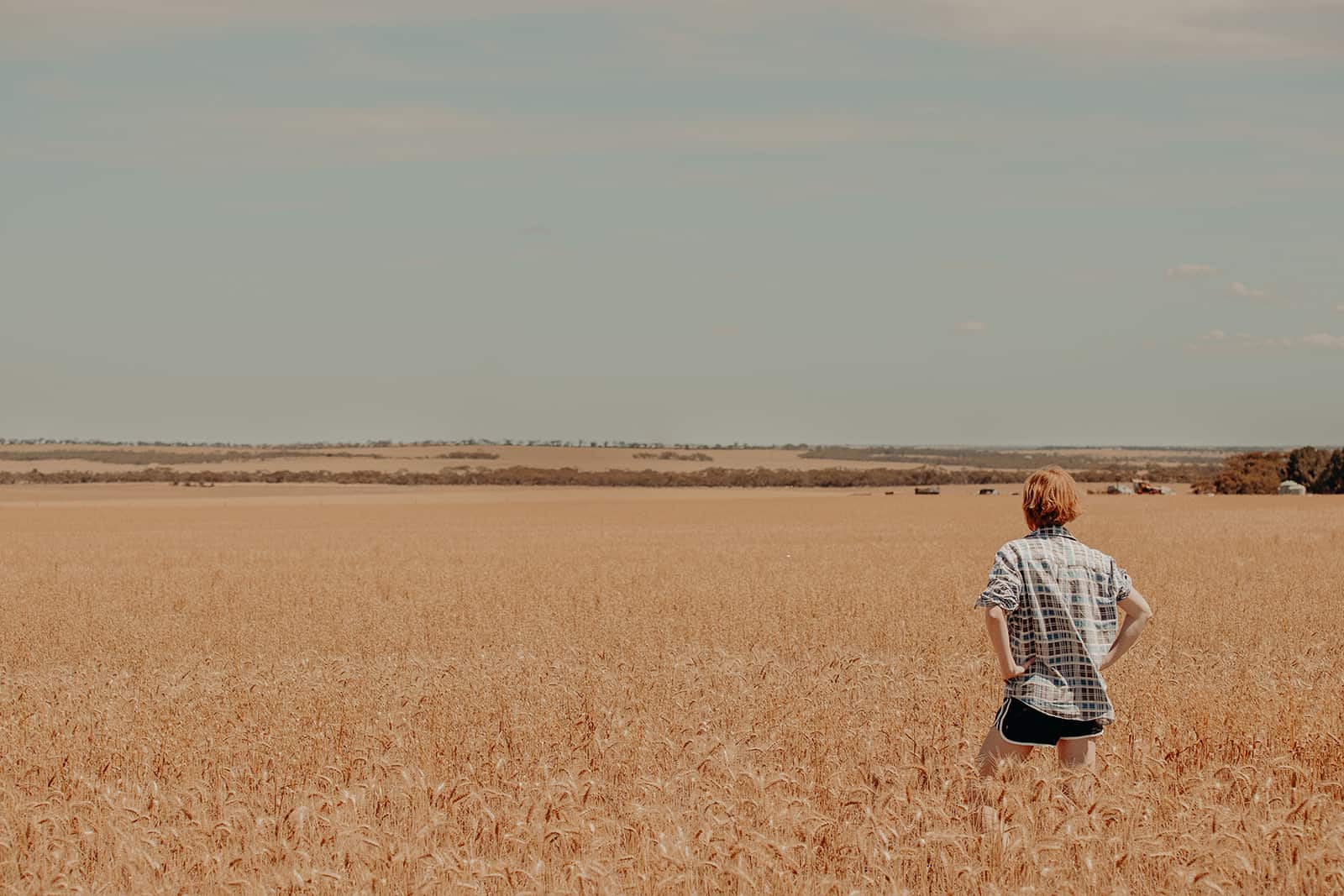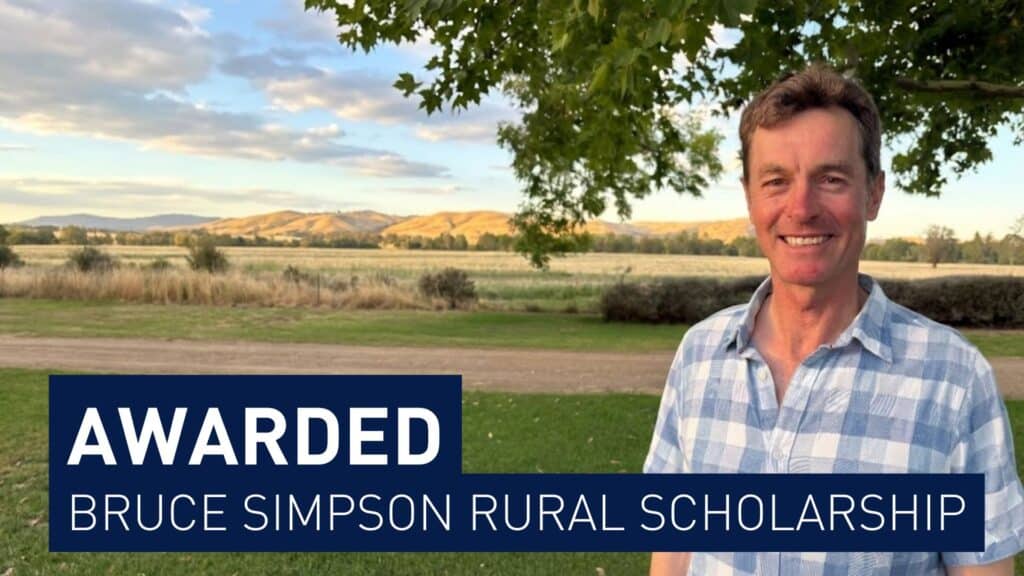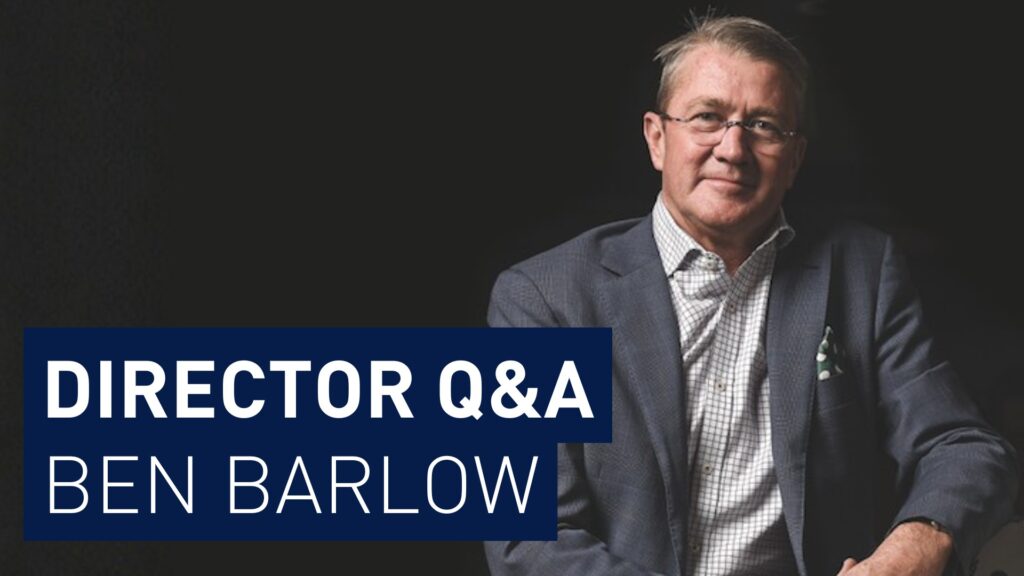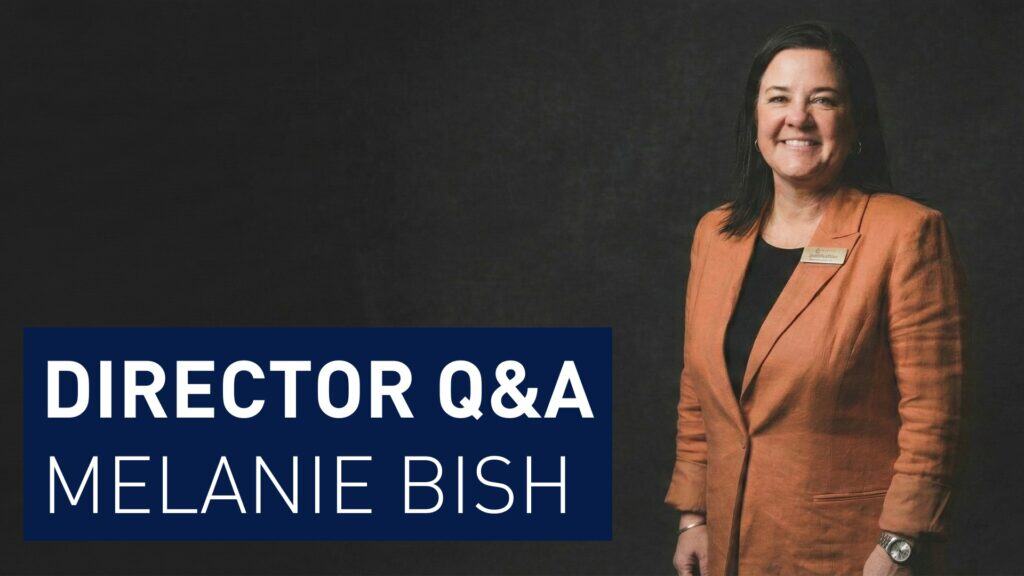For the well-travelled Tamsin Scholz, there’s only one place that really feels like home; the tiny town of Wudinna on the Eyre Peninsula.
“It’s the only place I can walk out of the supermarket in a better mood than when I went in,” she explained.
“I can walk in a bad mood, but I’m always going to run into someone I know, have a chat, give someone a smile and by the time I’ve come out, I’m always in a better mood.”
That sort of connection doesn’t come overnight. It comes from a sense of belonging. For generations, Tamsin’s family has farmed the peninsula. The predominately dryland cropping and sheep area, six hours west of Adelaide, has a population of 1100 people and is known for a giant statue of a farmer.
As cropping farmers at Pine Glen, the Scholz family understand the cycles that go with primary production. The coming and going of the seasons. The ups and downs of markets. The way Mother Nature can make or break a crop; dust storms, floods, and of course crippling drought.
Tamsin loves the fact that her community is small, remote and not easily pigeonholed.
“No one’s wearing cowboy boots to the pub. They’re more likely to be wearing surf brands than Wranglers!”
Despite the fact her family comes from a long line of farmers, Tamsin is quick to point out her skills are not agricultural. She studied journalism and international relations, before doing her honours on alternative strategies to combat radicalisation in Australia.
She now works as a project support officer with Regional Development Australia Eyre Peninsula based at Port Lincoln.
“I’m not a farmer! And I have no intention of farming. I just love the area and the lifestyle.”
Keeping rural communities alive
After wrapping up her tertiary studies in Adelaide, Tamsin was bitten by the travel bug, galivanting around the world and resisting a career that would commit her to one place for too long. That is, until Wudinna lured her home. Today, she’s set on keeping the rural lifestyle dream alive and encouraging others to do the same.
“We want to keep people here,” she said. “Obviously we’ve got a small population, so to keep the young people here, you’ve actually got to put in the work to make sure they enjoy the benefits of living here.”
The main benefit for Tamsin means living in a farmhouse on the family property and working remotely. Keenly aware of the need for market and skill diversity, she committed to the Drought Resilience Leaders Development Program.
“You have to get involved to make sure those benefits that come with living in a small community continue. The leadership program really made me conscious of what it means to live in our community,” she said. “It’s really important we’re not relying on agriculture, because when things go wrong, everyone is affected.”
The Drought Resilience Leaders Development Program is designed to equip communities with people who can make a difference when the next drought inevitably returns. And the Eyre Peninsula is no stranger to drought, and dwindling populations mean both those who remain, and those who return must be ready to face challenges and opportunities alike.
Understanding the deeper impacts of drought
The rural lifestyle also enticed another member of the cohort, Rowena Norris and her young family to return to the Cowell area in 2016 after 20 years in a corporate career. It’s 200 kilometres from Tamsin’s home turf, but on the eastern coast side of the peninsula in the Miltalie district. For six generations the Norris family have been farmers. But Rowena is the first of them not to be called Robert.
“I grew up understanding drought from a paddock space. What I really got out of the program and then also living through the recent drought in our area was having far more awareness about the impact of drought on the community. And how much of an impact things like weather apps have on mental health,” she said. “For example, when you’re checking a weather app 20 times a day because you’re worried that the one to five millimetres that you’re desperately needing is either going to increase to become 10 to 20 or disappear altogether?”
While Tamsin’s interest in the program was piqued because of her desire to understand people, Rowena wanted to understand her business and community better. After all, individuals and their relationships to each other are the foundations of all communities, large and small.
Everyone can make a difference
Both women initially hesitated to apply as they were unsure how drought resilience on a larger scale related to them. By the program’s end, they were in no doubt they could make a difference.
According to Tamsin, her community is more drought resilient because of the deep generational connections and the ability of locals to talk to their peers.
“I don’t think there is much I can do beyond giving people a space to talk.”
And that’s precisely what she’s done. Tamsin’s tapped into her community’s openness and is sharing it through her podcast Tales of Eyre. With four episodes recorded and over 1000 downloaded, Tamsin says the huge amount of community support has surprised her, especially when listeners want to have a chat about them!
“We did speak in the podcast specifically about dealing with the pressures that come with farming,” she said.
“But the conversations that resonate with people are those with people from your own community going through and dealing with the same issues as you. I think by being able to step back from your own experience you’re better equipped to contribute to the community in a general sense.”
The podcast shares meandering conversations that encompass farming and identity, positive aspects of the community, strategies to cope with stress, succession planning and even what guests would like to see happen in their community.
“We’re talking about who they are, why they came here or why they stayed here originally and what keeps them here. We’re talking in a really positive way about the community, and then we’re going on to talk about coping with stress and how they deal with it,” said Tamsin.
Preparing for future drought
The generational nature of farming means it has always been a vocation for optimists. The desire to leave the land in a better condition for your children gives managers the perception to think long term. In the middle of a dry spell, an ability to see the good times ahead, helps get one through seemingly endless blue-sky days that offer no reprieve. With increasing challenges, including climate, markets and an ageing population, resilience is becoming more important with every harvest.
Rowena Norris recalls the dramatic dust storms of her childhood. They would prevent the school bus from running and meant she had to stay unexpectedly in town with friends instead of going home.
As an adult, she now has a complex understanding of what drought means for not just her family and the business, but the broader community.
“Following recent drought years, we have invested in water catchment, storage and monitoring technology to safe-guard ourselves for future dry periods. We’ve started a three-year pasture plan to establish mixed species in open, non-arable acreage for livestock grazing, to rest cropping paddocks and reduce the risk of erosion and drift.”
Rowena and her husband Dave and their two sons, Harry, 10, and Oliver, 9 operate their fixed farming business across 4856 hectares together with her father, Rob. They want to increase their cattle herd and change the breeding program of their Merino and crossbred sheep to increase pastures in marginal country. Rowena found the Drought Resilience Leaders Development Program invaluable and has managed to apply a lot of ideas back through their own operation.
“Given the timing of the drought program, it was probably more cementing things that we already thought we should be looking at,” she said. “Certainly hearing other participants talk about revegetation projects that they were looking at really confirmed that perhaps it was going to be the right direction for us too.”
Drought has overlapped with a few milestones in Rowena’s life. From the dust storms of her childhood to the move to Mildura in the Millennium drought- the scarred landscape playing havoc with her first impressions of the area. And when she and Dave took up farming as a second career in their 30s, it again reared its head. Her greatest challenge? Trying to communicate the concept with her young children.
“When we were growing up we only had one rainwater tank to get us through the summer months. Our kids initially grew up in Mildura, so you turn on the tap and there’s always water in the river. It’s not that big of a deal. So trying to shift their mindset now to be more conservative during your summer months with water use has been difficult,” she said.
She’s building the boys’ understanding of resilience from an early age.
“We’re trying to educate them as to when it doesn’t rain or when it floods or when the crop falls over due to hail, what that actually means from a financial perspective- like not being able to afford the type of tractor that the neighbours have.”
For Rowena and Tamsin, life on the Eyre Peninsula is a choice and an opportunity. Brought together through the Drought Resilience Leaders Development Program cohort, the pair have committed to ensuring not only will their own lives thrive in the face of adversity, but their communities as well.
Written by Jayne Cuddihy.






